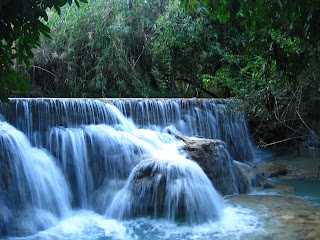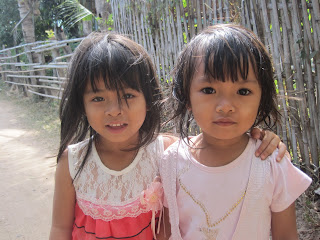Our 4 day trip through the desert was otherworldly. We chose a great tour company, the staff were great and there was abundant food.
 |
| Natalia making lunch. |
Desert and mountains in shades of ochre as far as the eye could see, dotted with ethereal mineral lagoons in striking colours like bright orange, electric yellow, pale green, and thousands of flamingos. Active smoking volcanoes, stinky sulphurous geisers at 5000m, and a salt flat 10 000 square kilometers, blinding white hexagonal tiles in every direction. Goofy looking ostriches sprinting through the desert. Dorky looking llamas and alpacas and their wild cousin, the far more elegant endangered vicuña. I can't understand camelids, grazing on sand with no water source in any direction for dozens of kilometers. Adorable vizcachàs, which sort of look like a giant bunny with a long bushy tail and a tendency to stand on their haunches like a squirrel. Rusty-blond foxes. A bunch of new human friends that hail from South Africa and France, with whom we'd play cards and share travel stories in the evenings in our remote little guesthouses in the desert, lit by a dim bulb powered by a sole solar panel.
 |
| the striking red Lago Colorado, a red mineral lake with a big black storm blowing in. |
Our land cruiser racing across the salar at 5am, white as far as we could see, the sun just starting to blush the horizon, we arrive at an island that was once a massive coral formation in the ancient inland sea. It's covered in giant cacti estimated at around a thousand years old. We hike to the top of that island, and the confusion of the beaches around island that are not liquid. That the white is not snow.
A gigantic lake the color of canned tomato soup, with a white crusty shore, dotted with flamingos. A hot sun and a fierce wind with a huge black storm system blowing in before our eyes.
 |
| one of the many mineral lagoons. |
 |
| the hot spring |
Our trip ended in a little grim town called Uyuni, and we got right out of there. Took an 8 hour bone-rattling night bus ride on a wretched highway that may have been unpaved the entire way and arrived in Oruro (3700m). The 4 day trek was amazing, and we were exhausted, from lots of very early mornings and a lot of stimuli, and treated ourself to our first hotel room. We needed to do a thorough re-organize of our packs, purge some clutter, sleep in a quiet room without 6 other travelers. We watched mindless television, took overly long showers, slept SO well and we were refreshed. The grandmotherly matriarch of the family that owned the little hotel spoke the best English we'd encountered in quite some time. She told me her best friend moved to Montreal years ago. Upon asking when we needed to check out she kindly told me that it wasn't busy, to take my time, stay til 2 or 3 o'clock. When she tucked us into our cab to go to the bus she squeezed my arms in the most motherly way and told us to come back some day. It was $30 well spent.
We are having little pangs for Christmas and will do our best to call family tonight...Bolivia is really into Christmas and it may be hard to find a place open to make a call from.
Cochabamba, where we are now, is the biggest city we've been to in Bolivia so far. It's bustling and efficient. The outskirts of the cities are very sad slums...Bolivia is the closest thing I've experienced to the poverty I witnessed in India. We really liked Oruro, too. The markets are amazing. Bolivians, especially the indigenous Quechua do NOT want their photo taken, and you either need to be really sly or miss out on many cool photo op's. I tend to chicken out and respect their wish not to be photographed.
Bolivians are jolly. Once again I'm struck by how people in the countries I've visited who possess the least material wealth, seem more generally cheerful and easygoing that the counterpart.
I really enjoy the folk music of Bolivia, the most of any latin American country I've visited thus far. The food is boring, but the fruit is incredible. We're so close to Brazil we're getting amazing mangos, now. Yesterday in the market a jolly plump Quechua woman bullied Nate, to the point that instead of getting the two mangos we wanted, we walked away with 4 gigantic mangos and 6 grenadillas. Grenadillas are in the passion fruit family and I absolutely love them. Her reasoning was that she couldn't give us change for our 20 Boliviano note, and so we simply had to leave with 20 Bolivianos worth of fruit. ($3) We really miss the tasty, (safe) tap water of Argentina and feel acutely aware of the dozens of plastic bottles we are consuming.
There are no backpackers in either city that we've seen thus far, and the backpacker hostels don't exist. We're in modest little "hostales". Our decision to spend two weeks at Parque Machia means we will miss out on a couple of very interesting cities (Potosi and Sucre) but it feels great to be noticeably OFF the gringo trail, and doing something different. Not a single backpacker had heard of the NGO we'll be working with, or even the national park where the refuge is located. We're both excited to do somehing totally new and unfamiliar, and that contributes. At Machia there is a puma who is undersize for a full grown puma. He has malformed legs from being struck repeatedly as an evil circus attempted to train him to jump through flaming rings. He's an example of one of the resident animals that was confiscated from a bad situation and will live out his life in their care as he will never be able to survive in the wild. Apparently he loves women. There are 700 animals there.
Off we go to Villa Tunari shortly, and to Parque Machia tomorrow, to start our two week stay on the refuge.
I wish you all Merry Christmas, Festivus, etc, and a happy new year.











